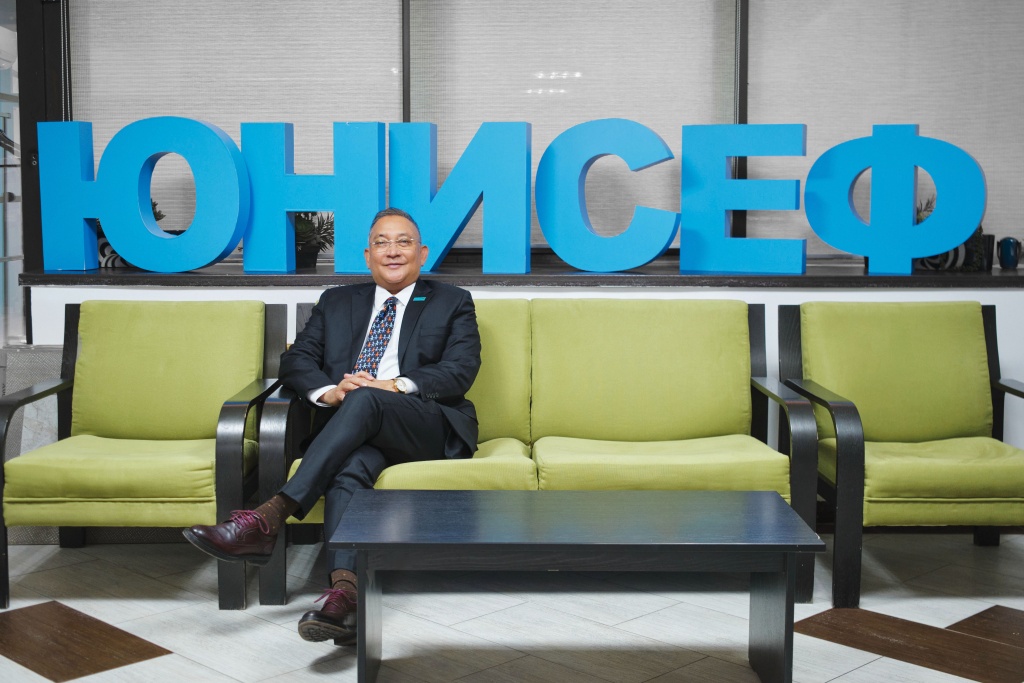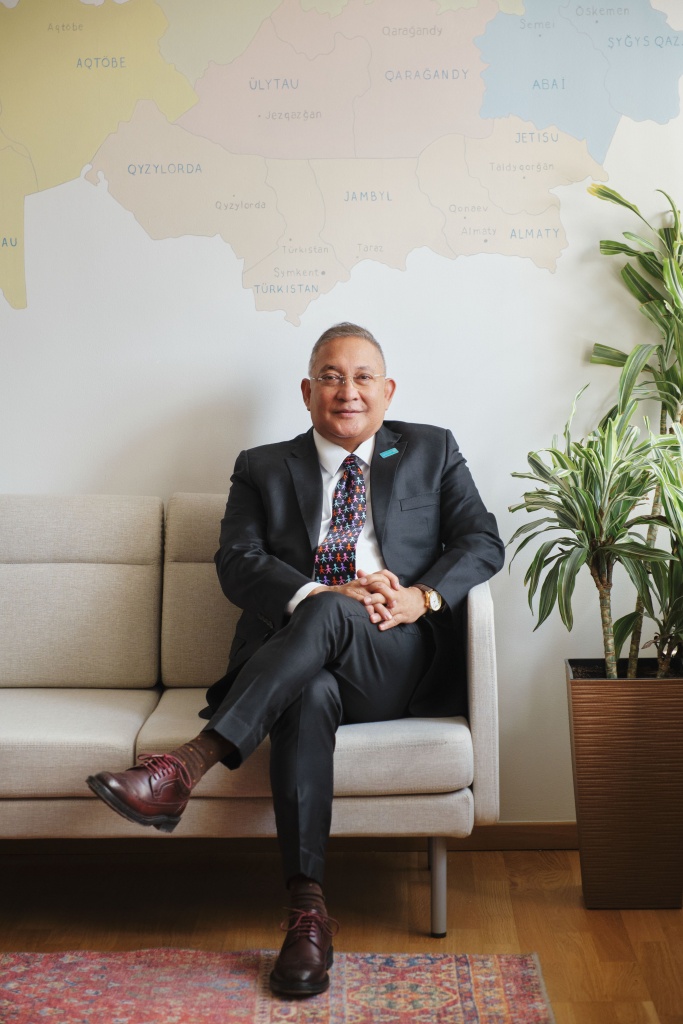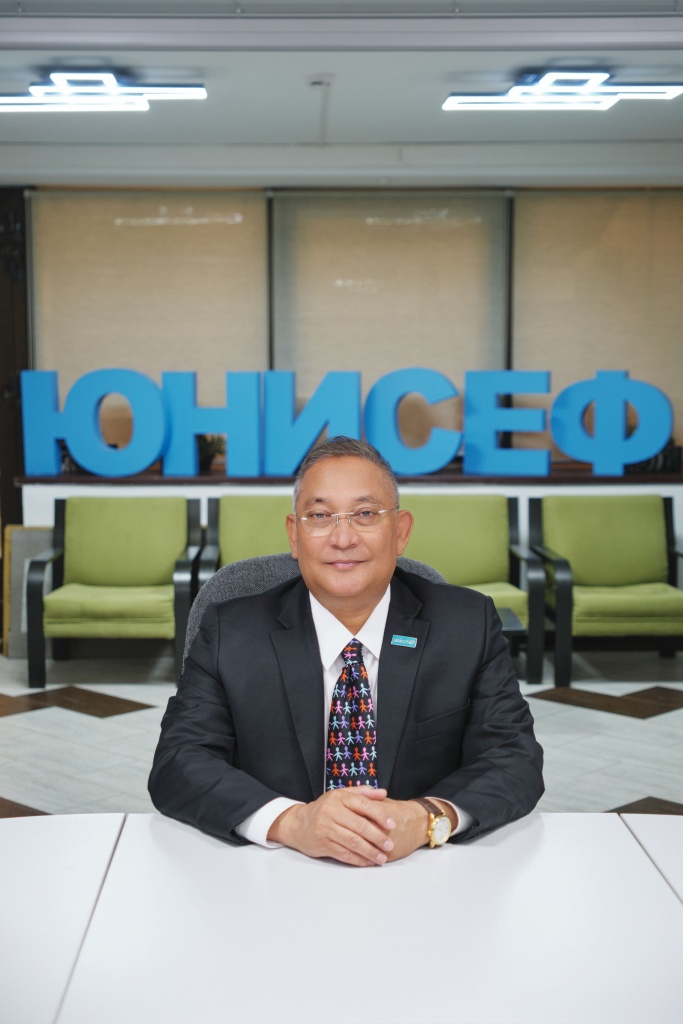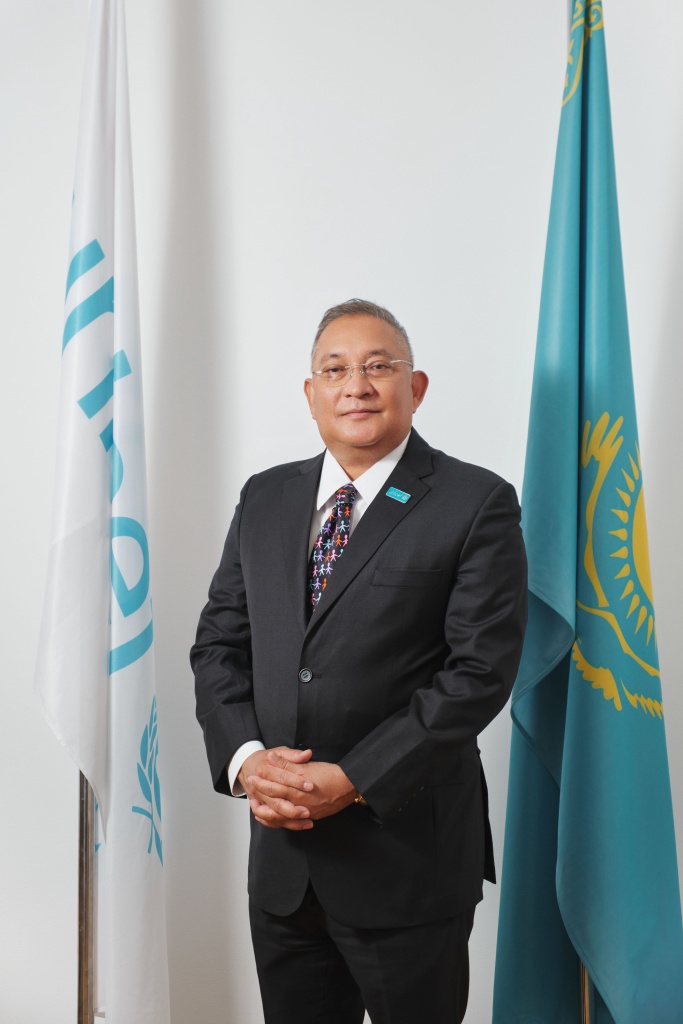The head of UNICEF in Kazakhstan shared how his career in the organization began as a surgeon, and why it became his life's work.
Dr. Rashed Mustafa Sarwar, city — Astana, Head of UNICEF in the Republic of Kazakhstan
About myself
I am the UNICEF representative in Kazakhstan. It has been exactly a year since I arrived here, and this is my 13th country of assignment.
I started my career with another UN agency — the World Food Programme in 1997 in Tajikistan. Humanitarian development has always been close to my heart. At that time, I was finishing my studies and got the opportunity to work briefly with WFP. I was a doctor and a surgeon, planning to return to medicine, but 26 years have passed, and what was supposed to be a "temporary" job has become my life's work.
Later, I worked with the UN High Commissioner for Refugees and then moved to UNICEF, where I have been working for 24 years. I have worked with vulnerable groups, refugees, and since 2001, with children and for children. This has become my life.
Over the years, I have worked in Tajikistan, Georgia, Kosovo, Switzerland, Indonesia, Myanmar, the North Caucasus, Azerbaijan, Belarus, Malaysia, and Brunei. I also worked in Poland, where I headed UNICEF's office supporting millions of refugee mothers and children from Ukraine. And now I am here in Kazakhstan—a country that captivated me with its geography, nomadic way of life, and level of digital development. It is a wonderful platform for developing programs, engaging with the government, parents, and businesses.
About Central Asia
When we first arrived and drove from the airport along Mangilik El Avenue, the first thing that came to my mind was "Wow!". This wide, majestic avenue, where everything is so orderly, well-thought-out, and created with a sense of discipline, gave me that "wow" effect.

We passed the Triumph Arch, and I saw many cozy cafes. I thought to myself that if there are so many cafes in the city, it means people meet here, communicate, and live a full life. Then we drove past beautiful government buildings, which enhanced the impression: the city is young and dynamic. I thought that we could settle here.
The first pleasant surprise was the team. I saw how stable, energetic, and open to innovative approaches the team is. This is inspiring. Then I began meeting people outside the office — every person I met turned out to be friendly and positive. Today, many of them are my friends. And, of course, Kazakh hospitality is something special.
About the work
I have always dreamed of working within the UN system, and I still believe in its mission. Today, the role of the UN is widely discussed, but I firmly believe it is the only organization that can bring together 193 heads of state and government under one roof.
UNICEF holds a special place in my heart. It is the voice of those who are often not heard. Children cannot go out on the street and demand a good clinic or kindergarten. Adults can protect their interests, but children cannot. We speak on their behalf. And we do this in 190 countries, reaching millions and billions of children. This is why we at UNICEF are so proud of our work.

Our partners include not only the Ministries of Education, Health, Economy, Interior, Culture, and Information but also the National Statistics Bureau, the Commissioner for Children's Rights, and businesses. It is important to understand that children's issues are not the responsibility of one ministry but a national task. We apply the best international experience, adapting it to the realities of Kazakhstan.
We have more than 10 000 volunteers aged 16 to 24. We are creating an effective system of coordination, including participation in eco-initiatives — for example, we plan to plant 500 000 trees together with the Ministry of Ecology across Kazakhstan.
UNICEF supported the government in creating the Child Wellbeing Index, which tracks 56 indicators across regions in health, education, social protection, and more. This data helps assess the situation in each region and improve policy.
Another project of ours, U-Report, is a platform to engage youth in public processes, where they can express their views on important issues. Nearly 12 000 young people from Kazakhstan have become respondents on U-Report Kazakhstan. Recently, together with the Ministry of National Economy and the Institute of Economic Research, we conducted a survey on sustainable development goals. More than 3000 people aged 15-17 participated. We plan to expand the reach to 20 000-30 000 respondents.
About the work in Central Asia
UNICEF started its work in Kazakhstan 30 years ago, after the collapse of the Soviet Union. We immediately began efforts to improve the situation for children, starting with large-scale immunization campaigns against measles and polio, combating anemia, and micronutrient deficiencies in the population. Now, we have shifted to sustainable development issues. We work in the areas of inclusive education, home visitation services, healthcare, child protection, volunteer development, cybersecurity, digitalization, and mental health. One of our recent achievements is supporting the government in creating early childhood development and early intervention centers. Early intervention can change a child's future and save the government's resources.

Soon, we will complete the development of a new five-year program for 2026-2030. It will focus on three key areas. The first is early childhood development: preschool education, healthcare, and social services, which are particularly important in the first three to five years of a child's life. The second area is protecting children from violence and developing a system of social and psychological support. The third is climate. Kazakhstan, with its sharply continental climate and vast steppe, feels the impact of climate change acutely.
Additionally, we will continue to provide expert support in developing legislative solutions, assisting the government in implementing best international practices to protect children's rights. We also collaborate with regional akimats — identifying problem areas and proposing solutions.
Kazakhstan is developing rapidly, and I hope that in five years it will become a high-income country. But today we see differences between cities: Almaty, Astana, and other large centers are developing faster. Our task is to bridge this gap and give every child an equal start and the opportunity for a happy life.
Our work is impossible without the support of society. We need the participation of everyone — parents, teachers, local communities, and businesses. Public-private partnerships are key to sustainable results. In other countries, for example, in Malaysia, 170 000 people donate $5 monthly to support UNICEF programs. In Kazakhstan, about 5000 citizens are already doing this regularly, and we hope to increase this number. You can support us online through our official website — it's easy and quick.
